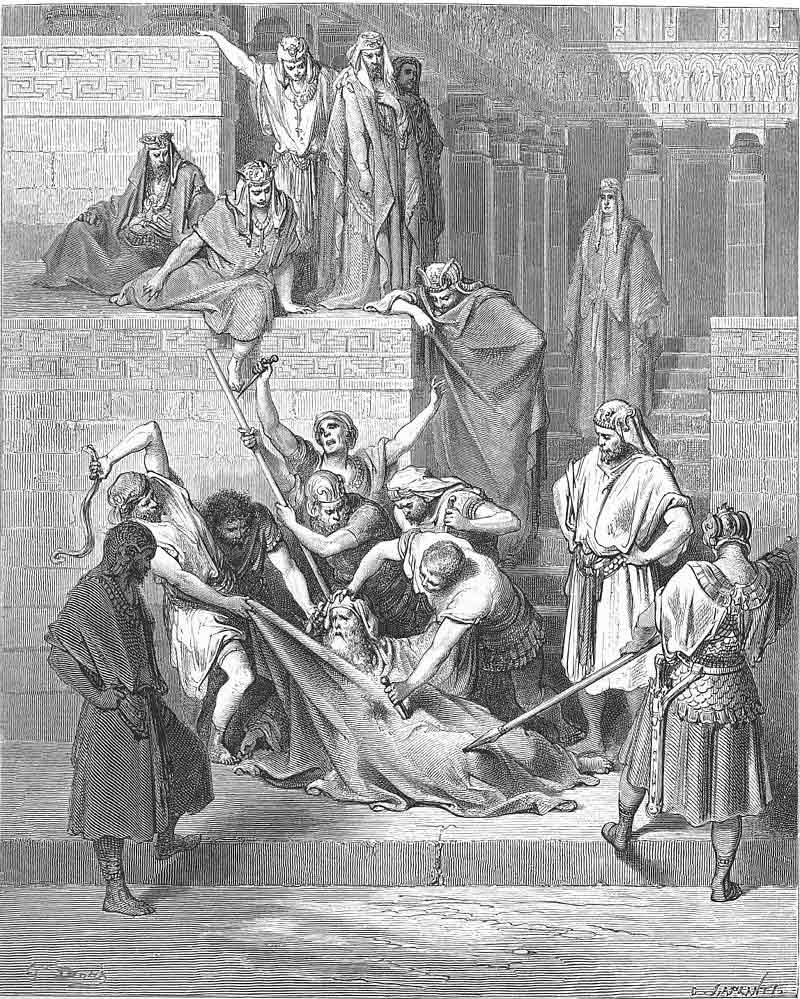
The Jews had once again stepped into the new millennium (the second millennium of the Common Era) in slavery. It was by then, about 4 hundred fifty years that Jerusalem was ruled by dynasties of various Muslim caliphs. Across the whole of Europe and also the Middle East, the Byzantine Empire was taking bad and continual beatings at the hands of the Arab invaders, especially the Turks belonging to the ‘Seljuk’ dynasty. By 1085, owing to tireless efforts by the ruling Emperor Malik Shah I, the Seljuk Turkish Empire had reached its zenith. Their empire stretched from the borders of China in the east all the way to the Byzantine Empire in the west.

By the end of the 11th century AD, the Byzantine Emperor sent his ambassador with an urgent message to the then Pope Urban II asking for help. Thinking of this as an apt opportunity to free the ‘Holy Land’ (Jerusalem) from the Muslim rule, the Pope made a plan to send an army of staunch Christian warrior soldiers to Jerusalem and also elsewhere in the Byzantine Empire. Campaigns by this force were later recognized in history as the ‘Crusades’. They were of course, not meant to help the Jews in any way, but only for two purposes: to liberate from the clutches of the Muslim conquerors, the places that the Christians considered holy and to unite the various factions in Christianity that had begun to oppose each other.
As per this plan, the first batch of Crusaders was dispatched for Jerusalem in the year 1095 AD. Jerusalem was then under the rule of an Islamic ‘Fatimid Caliphate’. In 1099 AD after a four-year-long fierce battle, Jerusalem finally fell to the Crusaders which led to the establishment of the ‘The (Latin) Kingdom of Jerusalem’ over the region.

Of course, this condition did not prevail and the power position kept alternating between the Muslims and the Crusaders. The Crusade wars continued for the next two hundred years and the control over Jerusalem kept changing hands between the Muslim caliphs and the Christian Crusaders.
The Jews, however, got no benefit whatsoever. On the contrary, the Crusades culminated in the massacre of hundreds of Jews at various places across Europe.
In the meantime, from the 11th century, the British Empire that evolved from the kingdom of ‘England and Wales’ and later spread across the globe, had started to take a definite shape.
In the period from 1260 to 1291 AD, Jerusalem faced attacks from the Mongol invaders. Considered extremely savage and merciless, the Mongols faced extremely bitter opposition from the powerful ‘Mamluk Sultanate’ of Egypt. The period saw bitter battles between the Mongols and the Mamluks, and finally, in the year 1291, the Mongols were made to bite the dust and the Mamluks conquered Jerusalem. The Mamluk rule over Jerusalem continued till 1517 AD. During the reign of the Mamluks, Jerusalem became part of Syria.
However, a sequence of events which were going to steer the course of the history of the world decisively and significantly had by then, already started to unfold. The ‘Ottoman Empire’ had begun to gain strength in the Middle East, especially ‘Anatolia’ (modern-day Turkey). In the 13th century, a small Turkish principality adjacent to Constantinople, flourished and spread to become the Ottoman Empire. Thanks to the tireless efforts and bravery of Osman I (Othman) and his descendants a small sapling had grown into an expansive tree.
In 1516-17 AD, a battle ensued between the Ottoman Empire and the Mamluk Sultanate. However, until then, the Ottoman Empire had grown so powerful that it was impossible for even the mighty Mamluks to restrain them. The Mamluks were defeated and the Ottomans annexed their territory which comprised of Egypt and its neighbouring regions.
Jerusalem was now a part of the Ottoman Empire. Did it make any difference to the Jews? Practically speaking, none at all! They were slaves and were going to remain so. It was just that their masters had changed.
For the next 4 hundred years – till the start of the 20th century, Jerusalem continued to be a part of the Ottoman Empire. The period saw the Ottoman Empire reach the zenith of prosperity and was considered to be one among the leading world superpowers of the time. Also, the ruler of every generation had a natural heir and thus there were no major power struggles. Though the rulers were Muslims, their relations with the Jews residing in their empire remained amicable and did not sour to the extent of turning hostile. Though these relations depended largely on the nature of the ruling sultans, barring an exception or two, they remained cordial.

In fact, in the first millennium of the Common Era, the Jews were forced to flee from Jerusalem due to the expansionist conquests of various aggressors and settle in different parts of the continents of Europe, Asia, Africa, etc. Later, for a few hundred years that followed, the Jews prospered financially owing to their diligence. Gradually, they went on to scale the social ladder and even achieved politically significant positions. Many kings had Jews as their close confidantes.
However, their industrious nature, their strict adherence to Jewish religious principles and their refusal to imbibe local religious practices, were resented by the locals. The locals, increasingly jealous of the progress of the Jews, began conspiring against them. The Jews became objects of their hatred and they poisoned the minds of local rulers against them. As a result, the Jews were subjected to harassment at the hands of the non-Jews. The rules that applied to them were meant to torment and the Jews were heavily taxed. Over and above all of this, the Jews were treated as ‘second-class’ citizens.
From the 14-15th century onwards, anti-Semitism grew and spread rapidly. The Jews had either to give in to forcible conversion to the local religion, or leave the country. Except for India, the Jews in Portugal, Spain, Italy, Britain and most of the other countries, were pressured to convert. The Jews, who did not fall in line were expelled from various countries under stringent laws.
 Merely to escape the wrath of the laws in force, some of the Jews, adopting a prudent strategy, did convert to local religions but secretly followed and abided by Judaism. Those who did not do were made to face eviction. Moreover, the prevailing circumstances in Jerusalem could not until then, have been considered suitable house or offer shelter to all such Jews expelled from various places and hence they started taking refuge in the Ottoman Empire that was the largest of the day. The Ottomans too opened their doors to the Jews and allowed them to mingle within their empire. The rightful land of the Jews was as yet, nowhere in sight and still seemed to elude them.
Merely to escape the wrath of the laws in force, some of the Jews, adopting a prudent strategy, did convert to local religions but secretly followed and abided by Judaism. Those who did not do were made to face eviction. Moreover, the prevailing circumstances in Jerusalem could not until then, have been considered suitable house or offer shelter to all such Jews expelled from various places and hence they started taking refuge in the Ottoman Empire that was the largest of the day. The Ottomans too opened their doors to the Jews and allowed them to mingle within their empire. The rightful land of the Jews was as yet, nowhere in sight and still seemed to elude them.
Now, 7-8 centuries of the second millennium of the Common Era too had lapsed and the Jews while stepping into the eighteenth century were as a matter of fact standing on the threshold of modern history.
….but it was not going to be long before the conditions started to change ! (To be continued…)












